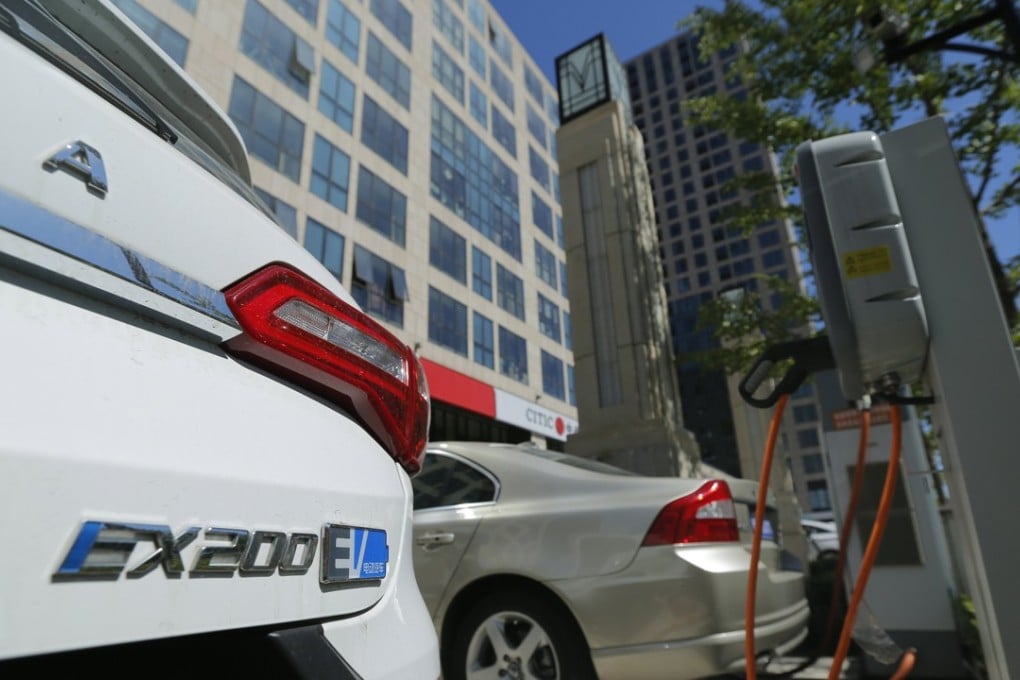The toxic business of ‘recycling’ China’s car batteries leads to illegal dumping, pollution and poisoned water
- Researchers estimate it will cost nearly US$3 million to reverse the damage caused by just one of the illegal plants

Authorities in eastern China are turning to the courts to raise the millions of yuan needed to rehabilitate water and land polluted by dumping from an illegal lead-acid battery recycling plant.
State-run Xinhua news agency reported on Wednesday that the city of Huaian in Jiangsu province would use “public interest litigation” to pay to remove the acid and heavy metals found to around the plant and a nearby river.
The plant was one of a legion around the country involved in the booming business of reprocessing batteries used in electric cars and scooters, forms of transport the central government has been keen to promote in its war on air pollution.
The plant operated between March 2016 and September last year, employing more than 30 people to smelt lead from 15,000 tonnes of used batteries. Investigators said the backers of the operation – four of whom were arrested – ploughed over 1.3 million yuan (US$187,000) into the scheme and made more than 10 million yuan (US$1.44 million) while it was up and running.
When the plant was first discovered, investigators could only stay at the scene for 20 minutes at a time because the noxious fumes were so strong, the report said.
Lead smelting can produce toxic fumes that damage the nervous system and bones.